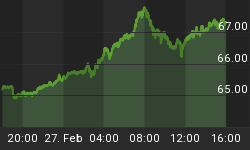Rather than immediately wonder how the main stream media became corrupted, it is appropriate to recall when only the tabloids were suspect.
Perhaps there was a time when any town that was big enough for two newspapers one would favor the Democrats and the other the Republicans. That would be by editorials going into an election. For most of the time, the goal was accurate reporting. That was back when most small towns were right out of a Norman Rockwell painting. On the outskirts of respectability were the tabloids with sensational headlines about UFOs everywhere and Area 51, specifically. A standing joke was what would happen if a real alien landed at the doors of the National Enquirer?
Much has changed since. In 2010, the "Enquirer" was considered as "legit" by the Pulitzer Prize Board and an almost monolithic Main Stream Media has deteriorated into the fantasy world of tabloids.
Sensationally scary headlines were once limited to tabloids. In the early 1970s, headlines about "global cooling" and "Nuclear Winters" began to be included in the main stream media. Over the past twenty years, today's form of yellow journalism has heralded the horrors of "global warming" and biblical rises in sea levels, not to overlook the violence of "climate change".
More hysteria than science, it sells newspapers and gets TV eyeballs, which is business. It also enabled a formidable expansion of state power and wealth, which is control.
How did it happen?
Media and big government found each other.
British Columbia, where this writer lives, provides a colourful political history. Perhaps a micro-model for much of the Western world.
Since the 1950s, it has been a struggle between power-mad socialists and the party that tries to approach sound government. The latter provided some guidance on the US election. Under the name of Social Credit, it was a pro-business and socially-conservative party. It was so non-urban, that no sophisticated person would ever admit voting for the party. But the "Socreds" won majorities for almost 30 years. Currently in the US, the smart set would never admit to supporting the new Republicans. Come to think of it, neither can some old Republicans.
British Columbia's first socialist government failed dramatically in 1975, defeated by Bill Bennett, a small-town businessman. The winning campaign platform was "Restraint", which meant cutting excessive government expenditures. This was disquieting to the Left, that had thrived for 4 years at the public trough, while unloading their personal passions on the taxpayers.
Premier Bennett's first press conference was fascinating. He reviewed "Restraint", which was refreshing to the taxpayer. This was opposite to the media's response. Instead of asking for clarification or elaboration, reporters began arguing against the policy points. It was a surprise and in retrospect the start of the unhealthy combination of big government and media. Quite likely this was taking place in many jurisdictions.
In the 1980s and 1990s, articles about journalism schools were published. When asked why students took journalism, the response was "To change the world". This continues, with The Guardian in 2015 headlining "Would-be journalists still want to change the world".
Reporting the world's news seems secondary.
The result has been an unhealthy combination of powerful politicians, government agencies that are working for their own interests, an activist judiciary and FBI all promoted by a highly-politicized media. There is no sophistication about international socialists or national socialists. The Hegelian Dialectic has been corrupted to "You must do this!". "Why?". "Because!".
The governing classes have become, well, ungovernable. Finally, the public is beginning to protest "in-your-face" and "in-your-pocket" bureaucracy. This fits the classic model of a popular uprising. The establishment lives the good life while peddling promises about how good things are to a public that know they are not doing well.
The last successful uprising took down the Berlin Wall and Communism. Beginning in 1989, ordinary citizens overwhelmed the threats of murderous police states. In the West now, all the governing classes have is a propagandizing media.
The popular uprising is the carrying event and is beginning to rank with the great ones in history. Now having an able executive, its success will continue. An uncorrupted media will report it - straight up.















